Technology-rich, innovative learning environments that focus on outcome-driven practical learning are a key focus for IHM.
Institute of Health & Management
The healthcare industry is in an era of transformation, and educators in this sector have to innovate to prepare practitioners for best practices and models of care. This is where an education at IHM truly makes a difference. Bringing together the collective expertise of experienced nurses, academics, and clinicians, IHM courses are delivered by professionals with extensive expertise in on-campus and online learning and teaching.
Since 2015, the Institute of Health & Management (IHM) has established itself as a premier provider of exceptional healthcare and nursing education in Australia. Offering industry acclaimed programs for Nurses, Medical practitioners, Dentists and other Healthcare professionals, IHM has achieved the status of an institute of higher education granted by the Australian Government’s Tertiary Education Quality and Standards Agency (TEQSA).
Technology-rich, innovative learning environments that focus on outcome-driven practical learning are a key focus for IHM. Virtual reality simulations, immersive learning platforms, and curriculums aligned with global best practices allow our students to get on board with the latest knowledge, tools and techniques. IHM graduates will be equipped with skills and competencies that will give them an edge over their peers.
downloadCorporate
Profile
Quality of Education Experience at IHM
IHM is ranked in the top 25 Australian higher education institutions for quality of education experience according to the ratings of participating IHM students in the 2024 Student Experience Survey (SES). 94.5% of our students were positive about their skills development, 91.5% rated our teaching practices positively and 90.4% rated our student and services positively.
Our Vision, Mission & Purpose
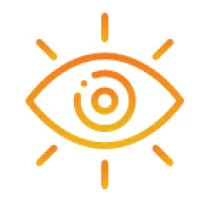
Vision
To become Australia’s first University College in Nursing by 2030.
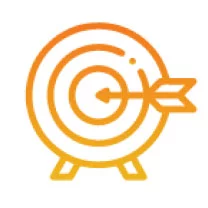
Mission
Education for Employment: Bridging the gap globally
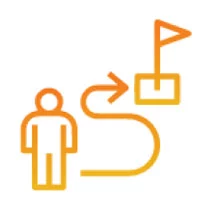
Purpose
Caring with Passion
Our Values

Innovation

Caring

Excellence

Honesty
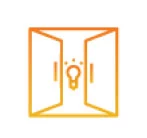
Openness

Trust
College Mission for IHM
“Education for Employment: Bridging the gap globally”
“IHM is committed to delivering education and training programs that equip our students with the skills and knowledge needed to be leaders in the healthcare industry. We prioritise creating strong partnerships with industry and society and measure our success by the employment outcomes of our graduates. Our commitment to innovation, excellence, and caring benefits our stakeholders, including students, staff, industry, service providers, and the community”.
At IHM, our commitment to “Education for Employment: Bridging the gap globally” goes beyond just preparing our students for jobs in the healthcare industry. We believe that by creating innovative mindsets in our students, we can equip them with the skills and knowledge to be leaders in the industry and drive positive change. We prioritise fostering a culture of innovation and creativity that challenges our students to think critically and adaptively.
We are dedicated to staying at the forefront of the latest developments and emerging trends in healthcare to ensure that our education and training programs remain relevant and meet the needs of the industry. Our core values of innovation, caring, and excellence are underpinned by honesty, openness, and trust. We aim to maintain high standards of policy and procedure, program/project development, and resource utilization to ensure the quality of our education and training programs
Our success is measured not only by the employment outcomes of our graduates but also by their ability to make a positive impact on the healthcare industry and society. We are committed to creating strong partnerships with industry and society to ensure that our programs remain relevant and meet the needs of the healthcare sector. Overall, we are dedicated to providing education and training programs that benefit our students, industry, and society, while fostering a culture of innovation and excellence.
Our Registration
- Provider name: Institute of Health & Management Pty Ltd
- Provider trading name: IHM Australia
- CRICOS Registration Code: 03407G – VIC (registered until 23 October 2031) View the CRICOS details
- TEQSA Provider ID: PRV14040
- ABN: 19 155 760 437
- ACN: 155 760 437
- TEQSA Registration Status Renewal date 22/01/2025
- Category: Institute of Higher Education
- Self-accrediting Authority: No
- HESF2021 7.3.1 Information Management-Higher Education Operations -Download: Higher Education Operations
If any regulatory conditions are applicable to IHM, they can be found in the Courses or Regulatory Decisions sections.
Course Accreditations
- Master of Nursing, Accredited, renewal date 26/02/2028
- Graduate Certificate in Advanced Nursing (GCAN), Accredited, renewal date 05/11/2028
- Bachelor of Social Work, Accredited, renewal date 28/02/2029
QILT link
View the QILT detailsFinancial Standing
The Institute of Health and Management runs on a financial year from July to June. The latest financial audit occurred in 2024, and was conducted by Black & Krantz who found the higher education provider is to be financially viable as an incorporated provider, confirming full financial compliance for the 2023–2024 year.
Student Enrolment
| Courses | Indicative No of Enrolment 2024-25 | Indicative No of Enrolment 2025-26 |
|---|---|---|
| Graduate Certificate in Advanced Nursing | 1001 | 1410 |
| Bachelor of Social Work | 185 | 210 |
| Master of Nursing | 268 | 325 |
| GCAN ANP | 60 | 60 |
| Total | 1514 | 2695 |
TEQSA
Australia’s independent national quality assurance and regulatory agency for higher education is the Tertiary Education Quality and Standards Agency (TEQSA).
Their objective is to safeguard students’ interests and the reputation of Australia’s higher education sector by using a proportionate, risk-based approach to quality assurance that encourages diversity, creativity, and excellence.
TEQSA requires that all organisations that provide higher education credentials in or from Australia be registered.
Public and private universities, Australian subsidiaries of overseas universities, and other institute of higher educations make up Australia’s higher education sector. Higher education institutions deliver degrees ranging from bachelor’s degrees and associate degrees to advanced diplomas and postgraduate degrees (graduate certificates and diplomas, masters and doctoral degrees).
What is Higher education?
Higher education, also known as tertiary education, includes diplomas, advanced diplomas, associate degrees, bachelor degrees (including honours), graduate certificates, graduate diplomas, masters degrees, undergraduate degrees, and higher doctoral degrees, which cover the Australian Qualifications Framework (AQF) levels 5-10. IHM currently offers the following higher education courses:
- Master of Nursing (AQF-9)
- Graduate Certificate in Advanced Nursing (AQF-8)
- Bachelor of Social Work (AQF-7)
AHPRA
The Australian Health Practitioner Regulation Agency (AHPRA) partners with the 15 National Boards to regulate Australia’s licensed health practitioners in order to protect the public. Their aim is to protect the public by establishing guidelines and policies that must be followed by all licensed health practitioners. Each Board has a health profession agreement with Ahpra that specifies fees, budgets, and Ahpra’s services.
What they do?
Across all professions registered under the National Registration and Accreditation Scheme, Ahpra partnered with 15 National Boards to ensure the public has access to a safe health workforce. Their top goal is still public safety. The Health Practitioner Regulation National Law (the National Law), which is in effect in each state and territories, guides any decision they make.
The regulatory duties of Ahpra are as follows:
- Professional Standards – They advise the National Boards on registration requirements, rules, and guidance for health practitioners.
- Registration – They ensure that only health professionals with the expertise and credentials to deliver professional and responsible services are registered to practice in partnership with the National Boards. APHRA also oversees the registration and renewal of eligible health practitioners from both the local and overseas, as well as student registration.
- Compliance – APHRA monitors and checks registered health practitioners to ensure that they are following the Board’s rules.
- Accreditation – They collaborate with accreditation authorities and committees to ensure that graduate students are qualified and professional enough to qualify for health practitioner registration.
APHRA publishes a national Register of Practitioners so that the public has access to relevant information about particular health practitioners.
IHEA
The Independent Higher Education Association (IHEA) represents the bulk of Australia’s licensed and certified independent institute of higher educations.
More than 130,000 students and 120 universities make up Australia’s independent higher education sector, with independent providers approved to offer courses across the entire AQF spectrum (diplomas up to doctorates).
Higher education institutions that are members of the IHEA educate domestic and foreign students in undergraduate and postgraduate programs. Major independent institutions, colleges, business schools, niche providers, and professional associations with for-profit and non-profit business models make up their varied membership . IHEA members have a variety of accredited higher education degrees, ranging from bachelor’s degrees to doctoral degrees.
The Tertiary Education Quality Standards Agency, the Australian government’s regulator of all universities and institute of higher educations, have registered and accredited all members. For Australian independent providers, membership in the IHEA is a mark of excellence.
The IHEA’s Code of Good Practice, which is based on regulatory enforcement, sound governance, fair business models, quality teaching, and student participation, is a requirement for membership.
HEPP- QN
Through the power of collaboration, HEPP-QN aims to promote an improved private-provider efficiency footprint in the Australian market. The network was officially unveiled on April 21, 2015, at the Avondale Sydney campus in Wahroonga, with 17 of the 35 affiliate institutions in participation.
They are primarily concerned with assisting one another in the development and implementation of quality assurance frameworks through their higher education operations. Their goal is to be proactive and attentive in dealing with the industry’s urgent and critical issues.
PURPOSE: Developing and extending a PRIVATE PROVIDER HE QUALITY FOOT-PRINT
DESE
The Australian Higher Education Graduation Statement (AHEGS) is a simple, easy-to-read document that contains information about a student’s higher education qualification, the university where the qualification was obtained, and the Australian higher education system.
In consultation with the higher education community, guidelines for presenting an AHEGS were established to provide information to organizations planning to adopt the AHEGS. The purpose, relationship to other documents, content and style, issuing and authentication of the AHEGS are all defined in these guidelines.
Advance HE
Advance HE is a member-led, sector-owned charity that partners with universities and higher education around the world to enhance the quality of higher education for faculty, students, and community.
Their strategic priorities to improve faith and trust in higher education, overcome systemic inequalities, and advance education to meet the changing demands of students and community complement their members’ and the HE sector’s initiatives.
Through their equality, diversity, and inclusion (EDI) mission, they are specialists in higher education, with a special emphasis on improving teaching and learning, effective governance, leadership creation, and addressing inequality. Professional development programs and activities, fellowships, awards, student assessments, strategic transformation and advisory options, and membership are all forms they help (including accreditation of teaching and learning, equality charters, research, knowledge and resources).
They collaborate with their global network of associates and partners, as well as individuals, providers, and systems around the world, to identify contexts and problems and provide solutions, drawing on their experience and exchanging best practices.
AQF Qualification
The broad discipline-free nomenclature used in the AQF to classify each category of AQF certification, such as Senior Secondary Certificate of Education, Certificate III, and Bachelor Degree, is alluded to as qualification type.
The conditions for AQF qualifications are included in each AQF certification form, such as:
- the levels criteria
- the qualification type descriptor
- information about the responsibilities of qualification developers, accrediting authorities and issuing organisations
The main reasons for having AQF certificates are to ensure national recognition and consistency, as well as a common understanding of what each certification entails across Australia.
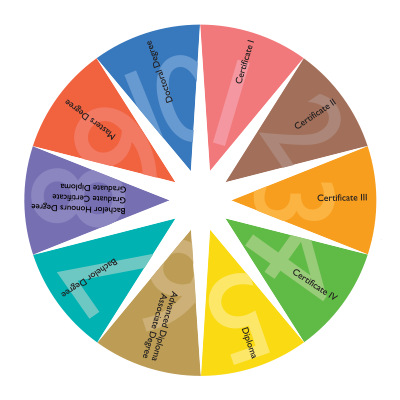
QILT
The Quality Indicators for Learning and Teaching (QILT) are a range of government-backed surveys that span the whole student life cycle, from enrolment to jobs. QILT provides reliable, globally consistent output data for Australian higher education, allowing for quality enhancement to be pursued.
The Australian Government’s Department of Education, Skills and Jobs funds QILT.
ComparED
From the perspective of current students and new graduates, the ComparED website provides potential students with appropriate and accessible knowledge about Australian institutions of higher education. The information on the website is based on survey findings from students who voluntarily provided feedback on their overall experiences during their higher education studies, as well as the outcomes of their career opportunities, such as starting salary. The content on this website is designed to assist consumers in making well-informed decisions about their future educational opportunities.
ComparED was designed to allow users to compare various organizations and research areas using a variety of performance metrics gathered from QILT surveys. The ComparED portal is driven by the QILT survey data and is financed by the Australian Government Department of Education, Skills and Jobs.

